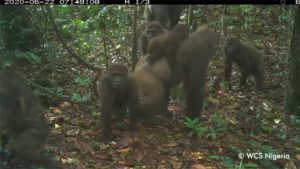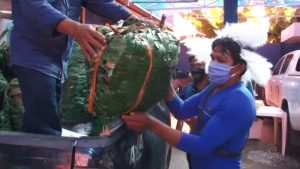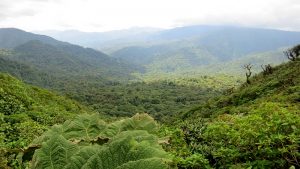The news happy news was greeted with amazement by the zoo operators, who for years had been trying to help the two pandas mate without ever succeeding. Ying Ying and Le Le started wooing each other and finally the passion broke out, far from the noises and prying eyes of the visitors, what they needed was just a little privacy.
The mating season, for these animals, usually occurs between March and May “Ying Ying started to spend more time playing in the water while Le Le marked the territory and sought the smell of the female”, added Michael Boos, executive director of the park.
Giant pandas Ying Ying and Le Le succeeded in a natural mating, @Ocean_Park has announced. “We hope to bear wonderful pregnancy news to Hong Kongers this year and make further contributions to the conservation of this vulnerable species,” the park’s Michael Boos said. pic.twitter.com/yJCpCdVHeK — Hong Kong Free Press (@HongKongFP) April 6, 2020
We’ll be able to understand if Ying Ying got pregnant only in june. In any case, this is a wonderful piece of news as this species is very vulnerable and, according to estimates by Ocean Park, there are only 1800 specimens left living in the world.
The species remains endangered: deforestation and the consequent destruction of natural habitats, which represent the primary source of sustenance for many species, cause many animals to starve as the main sources of nourishment lack; in the case of pandas, for example, it is increasingly difficult to find bamboo shoots.
Should we reformulate our way of protecting animals?
This event makes us understand how intrusive human presence is. When the coronavirus emergency is over, will we reopen zoos as a mere tourist attraction and source of money or will we transform them into places where animals are prepared to return to their natural habitat?
Events such as this highlight that how keeping animals in captivity is counterproductive for the conservation of the species.
Through this pandemic, nature is showing great signs of spontaneous recovery without the need for artificial interventions.








